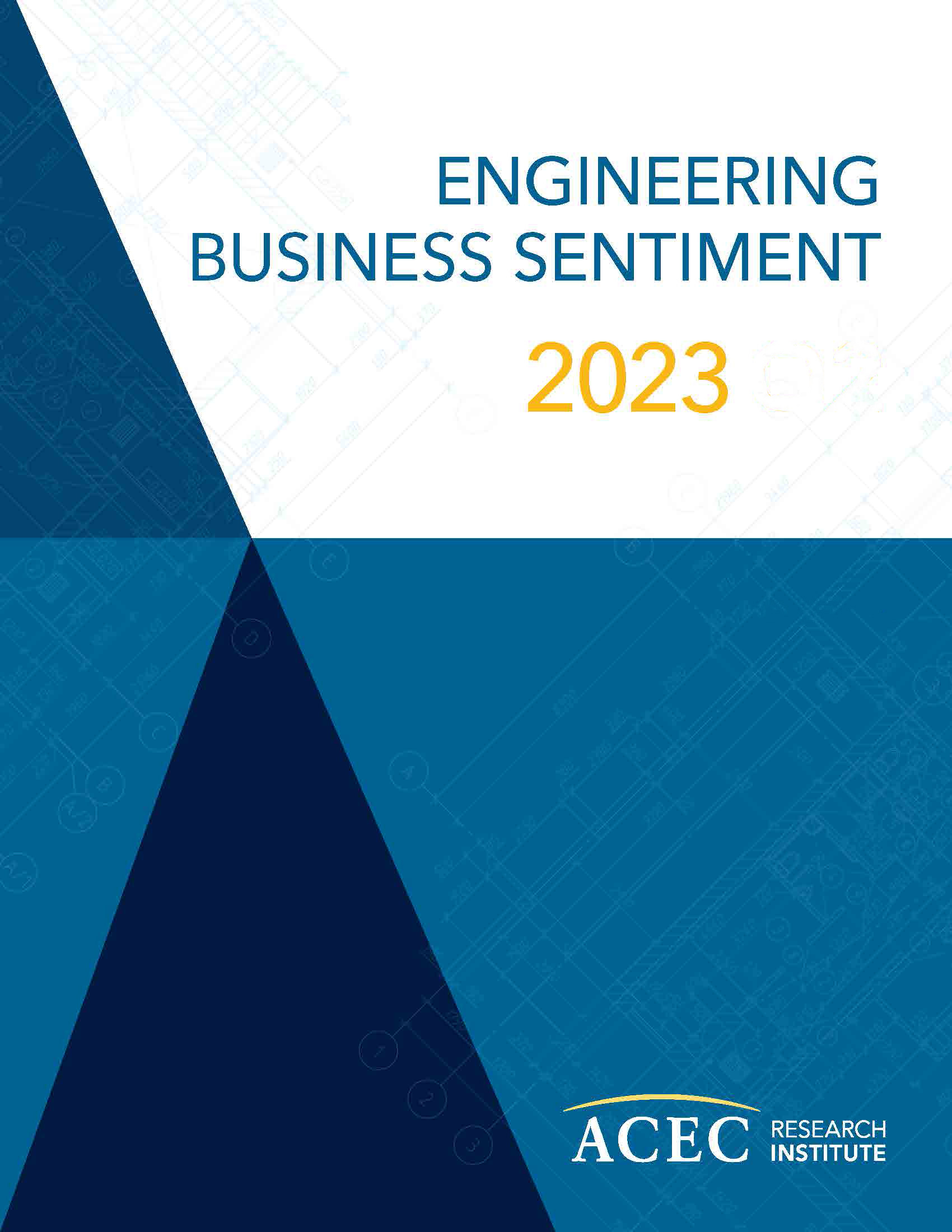Leaders across civil, environmental and structural practices express optimism for strong economic performance in the coming year, according to a survey by the American Council of Engineering Companies’ independent research arm. With perspectives from 600-plus respondents, the 2023 Engineering Business Sentiment Survey finds the outlook for the overall economy is improving among the nation’s leading engineering firms. Results show the financial performance of individual firms continues to grow—in tandem with a higher volume of work driven largely by significant Infrastructure Investment and Jobs Act and Inflation Reduction Act outlays.

“The survey is good news for our industry and the nation’s economy. Long-term federal investments in American infrastructure and manufacturing are a large reason engineering leaders are so optimistic,” says ACEC CEO Linda Bauer Darr. “America’s engineering industry serves a broad spectrum of our economy, from transportation and water to energy, housing, health care, industrial and manufacturing facilities. If firms are busy now and hopeful for the future, that’s a good indication that the broader economy is moving in a positive direction.”
The 2023 Engineering Business Sentiment Survey cites a particularly strong outlook for water/wastewater, industrial/manufacturing facility, and transportation work. While prospects for certain sectors, such as commercial real estate and telecommunications, are down slightly, the sentiment among business leaders remains positive in these markets as well. A broad sense of optimism across multiple sectors of the economy tempers concerns executives express over inflation and the potential for a recession. Engineering leaders report that workforce shortages continue to be a challenge for the industry, however, with over half of ACEC Research Institute survey respondents turning down work due to a talent pipeline failing to pace demand.
“We need more engineers to do the work, and the industry is pushing for solutions, including a long-term effort through investments in STEM education and other initiatives to attract more inspired and innovative young people to pursue engineering careers,” observes ACEC Research Institute Chair Mike Carragher. “We also need immigration policies that are better aligned to enhance the nation’s competitiveness, such as making available more H-1B visas and green cards in the near-term to attract and keep the best and brightest from around the world who are graduating from our engineering schools.”